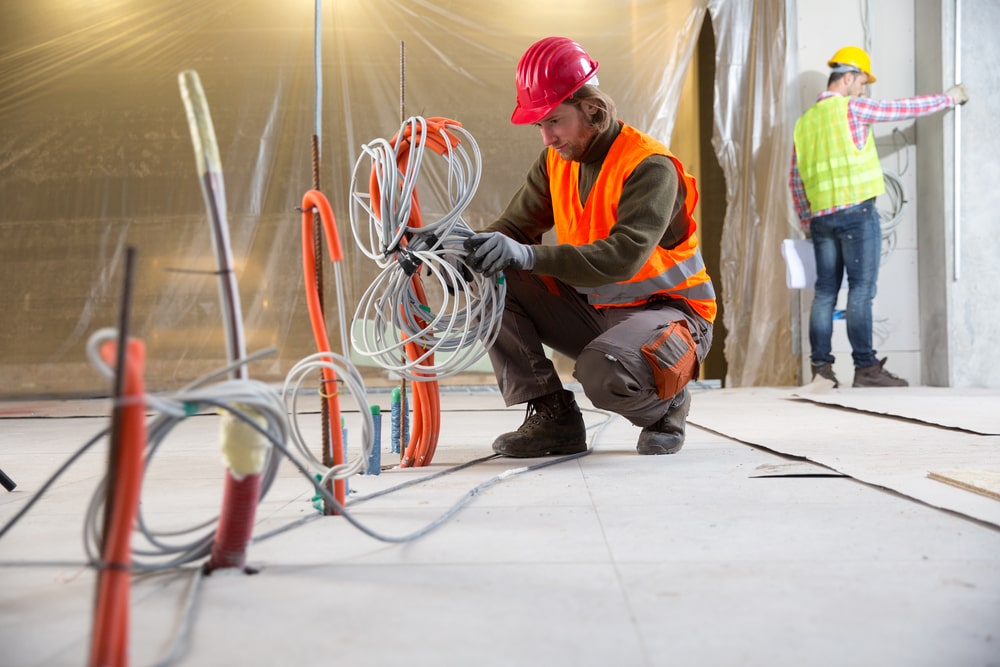Electrical field is broad and there are different types of Electrical Contractors. Understanding the different types of electricians will help you hire the right Dallas electrician or Arlington electrician for your electrical jobs. You probably don’t know that there are two categorizations of electricians. They can be categorized with the level of their services and they can also be categorized based on their area of specialization.
Different Types of Electricians (Based on Service Levels)
Outside Linemen:
This set of Irving electricians work on power lines. They are responsible for the proper transmission of electricity from power lines into residential, industrial, or commercial buildings. When a service wire cuts or when an electric pole gets knocked, it is their duty to fix both problems.
When a new building is constructed, you’ll need the services of outside linemen to connect your building to the grid. They run wires from the pole to your mains supply. Your inside wireman can take it from there. This is one of the most dangerous professions because they work on high-voltage lines.
Inside Wireman:
These electricians are meant to run wires around you’re your building. They install electrical outlets, lighting fixtures, and conduit wires. It is their duty to inspect the entire wiring system of your home. Of course, the installation of control panels and alarm systems is part of their services. Furthermore, you can hire them to troubleshoot and fix electrical faults in your residence.
Installation Technician:
The main job of an installation technician is to install low-voltage cables which are used for voice, video, and data outlets. Installation technicians often work with inside wiremen. In fact, sometimes, both of them may be in the same team of electrical contractors. The good news is that some Dallas electricians are able to provide the three levels of electrical services.
Different Types of Electricians (Based on Areas of Specialization)
Highway System Electricians:
This set of electricians install, maintain, and repair electronics for road systems. They are also responsible for the upgrade and maintenance of electrical infrastructure on traffic management systems, signages, streetlights, and roadways. In fact, their major responsibility is to maintain a safe transportation system.
Marine Electricians:
When you hear the word “Marine,” you’ll probably think of water. Yes, you’re right. This type of electricians is trained to work on water-faring machines like yachts, ships, boats, and other marine equipment. They are trained in school of seamanship or special training facility. Marine electricians will fix wiring or electrical issues in your ship or boat. They can also help with electrical installations on all water-faring vessels.
Automotive Electricians:
As their name implies, automotive electricians work on vehicles. They install and maintain all the electrical systems in motor vehicles. They also fix electrical issues in vehicles. You already know that there are several wiring systems in automobiles. It is their duty to install and fix the wires in vehicles.
Do you know that a fire could be ignited if some wires bridge together in your car? That underscores the importance of automotive electricians. The emergence of electric cars has increased the demand for automotive electricians.
Construction Electricians:
These electricians work in new buildings. They carry out basic wiring in construction sites. That means they are conversant with the electricals codes in Dallas, Irving, Round Rock, Arlington, and other cities in Texas. Most importantly, they ensure and maintain safety procedures.
Installation Electricians:
Here in Texas, these electricians also work on new buildings, but their line of duty is different from that of construction electricians. They are responsible for setting up electrical appliances like security, cooling, heating, and lighting systems. In addition, installation electricians also run the appropriate wires for the equipment. They are trained to work in industrial, commercial, and residential buildings.
Residential Electricians:
This is the most popular type of electricians. In fact, you probably may have hired a residential electrician a couple of times before. Residential electricians install, maintain, troubleshoot, repair, and upgrade all residential electrical systems. When there’s an electrical fault in your home, the best professional to call is a residential electrician. Some residential electricians work independently, while others work for electrical contractors.
Commercial Electricians:
This set of electricians perform the same functions as residential electricians, but they work on commercials buildings as Commercial Electricians like offices, stores, and warehouses.
Industrial Electricians:
These Industrial electricians also do the same thing that a residential electrician does. However, they handle large-scale projects. They work in industrial buildings like power plants, factories, and other ultra large buildings. The electrical works in industrial settings are larger and much more complex than what obtains in residential and commercial buildings.
Conclusion:
While these are different sets of electrical contractors, electricians can perform in several areas of specializations. For instance, some industrial electricians can also work on commercial and residential buildings.


